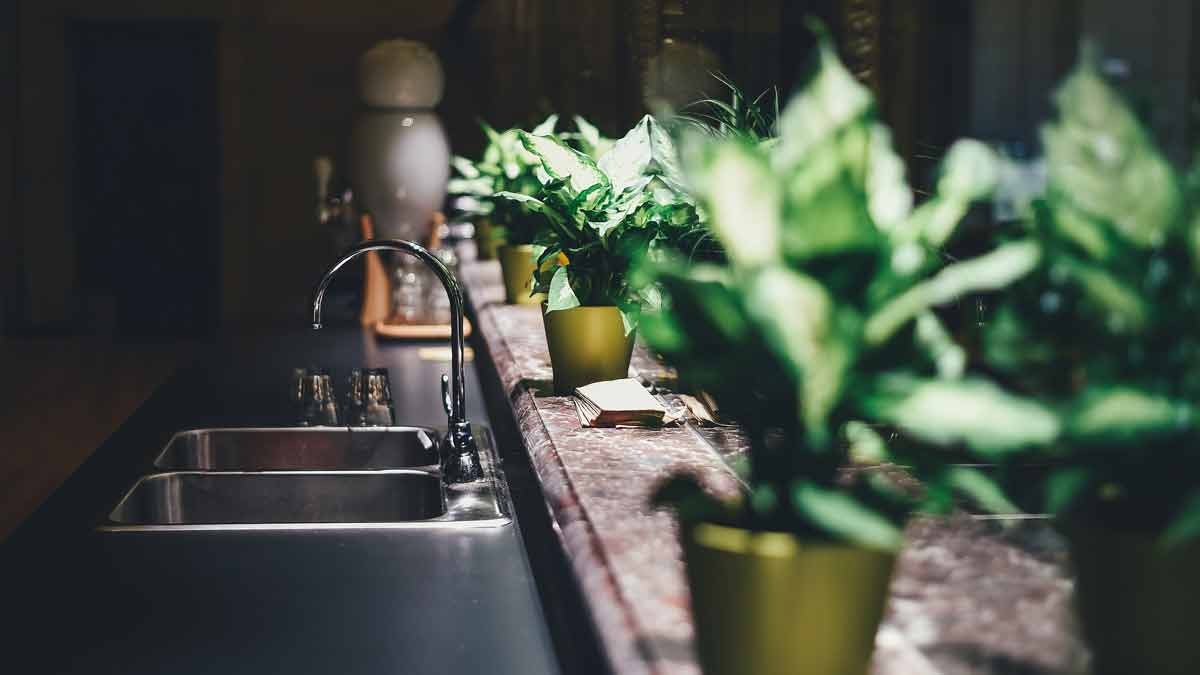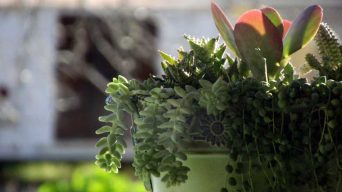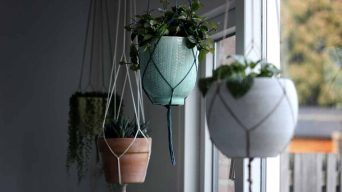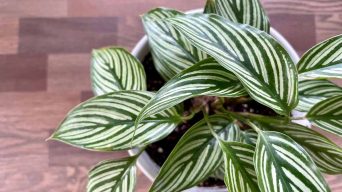Soft water containing sodium can harm or even kill houseplants over time due to the buildup of sodium. While soft water removes minerals that cause scale and other buildups on plants, it is not recommended for watering indoor plants. Most experts advise against exclusively using soft water to water plants.
Indoor plants are an excellent addition to any home, bringing nature and beauty to your living space.
However, keeping your indoor plants healthy and thriving can be challenging, especially when watering them.
One question that often arises is whether or not you can water indoor plants with soft water.
Soft water is water that has been treated to remove minerals like calcium and magnesium, which can cause buildup in pipes and appliances.
While soft water is great for cleaning and bathing, some people are concerned about whether or not it is safe to water plants.
This is because soft water can contain higher sodium levels, harming plants in large amounts.
So, can you water indoor plants with soft water? The answer is not a simple yes or no.
While soft water can be used to water indoor plants, it is important to understand the potential risks and take steps to mitigate them.
In this article, we will explore the pros and cons of using soft water for indoor plants and provide tips for keeping your plants healthy and happy.
Understanding Soft Water
Soft water has low mineral content, specifically low levels of calcium and magnesium ions.
It is created when hard water, which is water with high mineral content, is treated through a process called ion exchange.
The hard water is passed through a resin bed filled with sodium ions during ion exchange.
The sodium ions replace the calcium and magnesium ions, resulting in soft water.
While soft water is great for household use, such as bathing and washing clothes, there may be better options for watering indoor plants.
This is because soft water contains high amounts of salt, which can harm plants.
The sodium in the salt can interfere with the natural water balance in the soil, making it difficult for plants to absorb water and nutrients.
It is important to note that not all soft water is created equal.
The amount of salt in soft water can vary depending on the type of water softener used and the hardness of the original water source.
In some cases, the salt content may be low enough that it won’t have a negative impact on plants.
However, testing the water before using it to water indoor plants is still important.
Effects of Soft Water on Indoor Plants
While soft water is excellent for household use, it can negatively affect indoor plants if used for watering.
Here are some of the effects of soft water on indoor plants:
- Buildup of salts: Soft water contains high sodium levels, which can build up in the soil over time. This can cause soil to become compacted and make it difficult for plants to absorb nutrients.
- Altered pH levels: Soft water typically has a higher pH level than tap water. This can cause the soil to become more alkaline, affecting the growth and health of plants that prefer acidic soil.
- Nutrient deficiencies: Soft water lacks the essential minerals, such as calcium and magnesium, that plants need to grow and thrive. This can lead to nutrient deficiencies, which can cause stunted growth, yellow leaves, and other signs of poor health.
- Browning of leaf tips: Soft water can cause the tips of leaves to turn brown and dry out. This is because the high sodium levels in soft water can cause dehydration in plants.
To avoid these negative effects, it is recommended to use rainwater or tap water that has not been softened to water indoor plants.
If soft water is the only option, there are ways to mitigate its effects.
One way is to mix rainwater with soft water to dilute the sodium content.
Another option is to use a water filter specifically designed to remove sodium from soft water.
Watering Indoor Plants with Soft Water
Soft water is safe to water indoor plants, but it’s important to know its potential drawbacks.
Here are some factors to consider:
- Sodium content: Softened water can contain high sodium levels, harming or even killing your plants over time. If you live in an area with very hard water, using unsoftened water or rainwater for your indoor plants may be better.
- Soil damage: Sodium can damage the soil structure, making it harder for plants to absorb nutrients. Over time, this can lead to stunted growth and other problems.
- Mineral removal: Soft water removes minerals that can build up in soil and harm plants but also removes beneficial minerals like calcium and magnesium. If you’re using soft water exclusively, you may need to supplement your plants with these minerals.
One way to mitigate the potential adverse effects of soft water is to mix it with unsoftened water or rainwater.
This can help dilute the sodium content and give your plants a more balanced mix of minerals.
Another option is to use a water filtration system that removes sodium without removing other beneficial minerals.
These systems can be expensive, but they may be worth it if you have an extensive indoor plant collection that requires consistent watering.
Alternative Watering Methods
If you have concerns about watering your indoor plants with soft water, there are alternative methods you can try.
Some of these methods include:
- Collecting rainwater: Rainwater is an excellent alternative to softened water. It is naturally soft and chemical-free, making it ideal for watering plants. You can collect rainwater in a barrel or other container to water your indoor plants.
- Using snowmelt: If you live in an area with snow, you can collect snowmelt and use it to water your indoor plants. Snowmelt is also naturally soft and chemical-free, making it a great alternative to softened water.
- Using dehumidifier/air conditioner condensate: If you have a dehumidifier or air conditioner in your home, you can collect the condensate and use it to water your indoor plants. This water is also naturally soft and chemical-free, making it an ideal alternative to softened water.
Using these alternative watering methods can help ensure that your indoor plants receive the best possible care without exposing them to the potential adverse effects of softened water.
Final Thoughts
After considering the information from various sources, it is clear that there are better options than watering indoor plants with soft water.
Softened water contains high amounts of salt, particularly sodium, which can negatively affect the growth and health of plants over time.
Sodium can build up in the soil bed, preventing water and nutrients from reaching the roots.
While soft water may be more convenient, it is important to consider the long-term impact on your plants.
If you must use soft water, diluting it with rainwater or distilled water is recommended to reduce sodium.
Alternatively, you can install a reverse osmosis system to remove the excess minerals from tap water.
Overall, using natural, untreated water for watering indoor plants is best. Rainwater and tap water that have been left to sit for 24 hours to allow the chlorine to evaporate are good options.
Additionally, using high-quality potting soil and fertilizers can provide the necessary nutrients for healthy plant growth.







